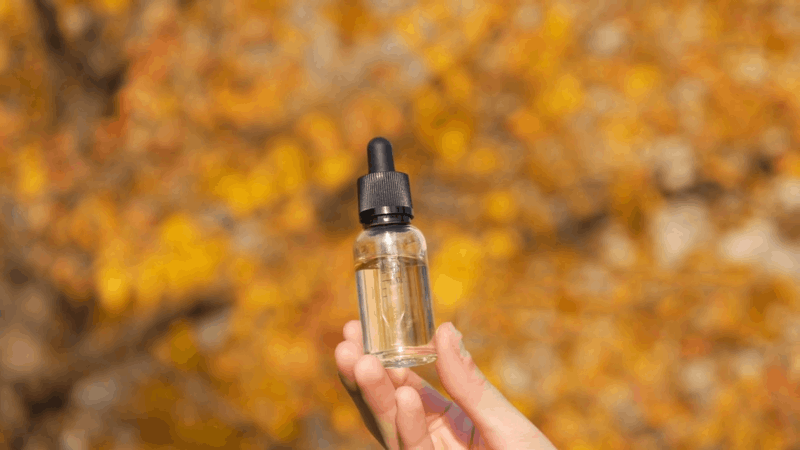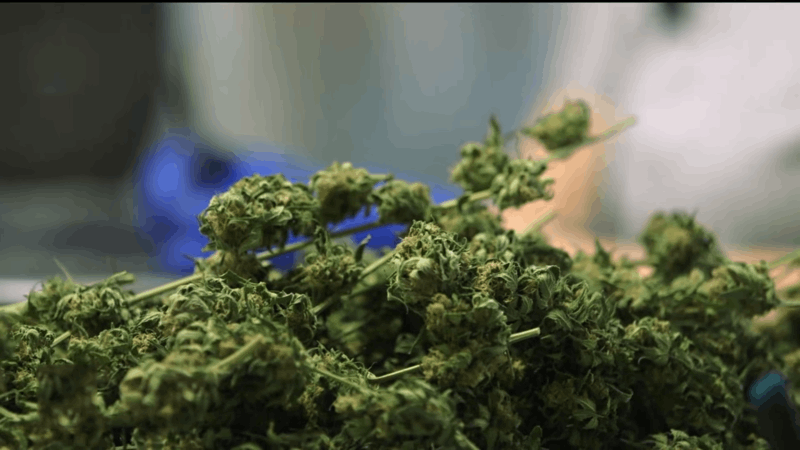No products in the cart.
CBD for dogs after surgery offers a potential solution for managing postoperative pain and promoting a smoother recovery process. CBD has grown in popularity as pet owners seek natural alternatives to typical pain drugs because of its possible pain-relieving and anti-inflammatory effects.
In this blog, we will look at the benefits and considerations of taking CBD for dogs after surgery, such as dose instructions, safety precautions, and the significance of consulting with a veterinarian for a customized pain management plan.
Dog in Pain After Surgery and More Things We Should Know

A dog in pain after surgery requires immediate attention and diligent care. To ensure their comfort and recovery, it’s essential to promptly contact the veterinarian, follow prescribed pain management protocols, and provide a calm and comfortable environment.
Monitoring for any signs of discomfort, preventing licking or chewing of the surgical site, and attending all follow-up appointments are crucial steps in facilitating a smooth and pain-free healing process for the canine patient.
How to Soothe a Dog After Surgery?

To soothe a dog after surgery and help them have a comfortable and successful recovery, follow these steps:
- Follow veterinary instructions: Adhere to all post-surgery care instructions provided by your veterinarian. This includes medication administration, wound care, and activity restrictions.
- Pain management: Ensure your dog receives the prescribed pain medication as directed by your vet. This is crucial for their comfort.
- Create a comfortable space: Provide a quiet and cozy area for your dog to rest. Use soft bedding and ensure it’s in a calm part of your home where they won’t be disturbed.
- Prevent licking and chewing: Use an Elizabethan collar (cone) or a specialized surgical suit to prevent your dog from licking or chewing the surgical site, which can lead to complications.
- Proper nutrition: Ensure your dog has access to fresh water and follows a balanced diet recommended by your veterinarian. If they’re not eating, discuss options with your vet.
- Gentle movement: Encourage short, leash-controlled walks for bathroom breaks to prevent muscle stiffness and promote circulation.
- Avoid stress: Do not expose your dog to anxious or stressful situations, other animals, or activities.
- Provide companionship: Spend time with your dog to offer comfort and reassurance. Gentle petting and soothing words can help alleviate anxiety in dogs.
- Monitor for complications: Excessive bleeding, severe swelling, discharge, or signs of infection should be monitored carefully. Contact your veterinarian immediately if you notice any concerning symptoms.
- Follow-up appointments: Attend all scheduled follow-up appointments with your vet. These visits help the veterinarian understand your dog’s health condition and make any necessary adjustments to the treatment plan.
Remember that post-surgery recovery can vary based on the type of surgery and the individual dog. Patience, diligence, and communication with your veterinarian are key to ensuring your dog’s health and a smooth recovery process.
Natural Pain Relief for Dogs After Surgery
Natural pain relief options for dogs after surgery can be used in conjunction with, or sometimes as alternatives to, prescribed medications. Here are some natural pain relief methods:
- Herbal supplements: Certain herbs, like turmeric and ginger, have natural anti-inflammatory properties and can help reduce pain and inflammation.
- Acupuncture: Alternative therapies like acupuncture can aid in the management of pain and the promotion of healing. It involves the insertion of tiny needles into specific points on the dog’s body to stimulate natural pain relief mechanisms.
- Massage and physical therapy: By using physical therapy and gentle massage techniques, a qualified practitioner can ease discomfort by easing muscle tension and promoting circulation.
- Cold and heat therapy: Applying cold packs or warm compresses to the surgical area can help reduce inflammation and provide comfort.
- Omega-3 fatty acids: Pain management can be helped due to omega-3 fatty acids which are found in fish oil supplements.
- CBD (Cannabidiol): CBD is derived from the hemp plant and is thought to have anti-inflammatory and pain-relieving properties. CBD is available in various forms, including oils and treats.
- Adequate rest and sleep: Ensure your dog gets plenty of rest and quality sleep. A comfortable, supportive bed can help alleviate pain by reducing pressure on joints and muscles.
- Diet and nutrition: Proper nutrition is essential for healing. Feed your dog a balanced diet recommended by your veterinarian to support their recovery.
- Hydrotherapy: Maintain muscle tone and reduce pain through providing low-impact exercise of hydrotherapy like swimming or underwater treadmill exercises.
- Calming and stress-reducing techniques: Reducing stress and anxiety can indirectly alleviate pain in dogs. To create a calming environment, aromatherapy or playing soothing music are the calming techniques that should be considered.
Please remember that not all natural remedies work the same way for every dog and depending on the type of surgery and your dog’s individual needs, the effectiveness may vary. To create a safe and appropriate pain management plan, do not forget to consult with your vet.
What Can I Give My Dog to Eat After Surgery?
After surgery, it’s essential to provide your dog with a suitable diet that promotes healing and is easy on their digestive system. Here are some recommendations for what you can give your dog to eat after surgery:
- Prescribed diet: Follow your veterinarian’s recommendations regarding the type of food and feeding schedule for your dog after surgery. They may suggest a specific prescription diet designed for post-surgery recovery.
- Soft or wet food: Soft or wet dog food is easier to chew and digest than dry kibble, making it a good choice after surgery. It’s especially suitable if your dog has dental issues or had oral surgery.
- Homemade broths: Homemade, unseasoned broths can be beneficial. They are nutritious and can encourage your dog to drink, which is essential for hydration.
- Boiled chicken or rice: Plain, skinless, boneless boiled chicken or white rice can be a bland and easily digestible option for a dog recovering from surgery. You can mix these with a small amount of plain, canned pumpkin for added fiber.
- Baby food: Unsweetened, plain baby food (without any onions, garlic, or added seasonings) can be a palatable option for dogs with a reduced appetite.
- Canned pumpkin: Plain canned pumpkin (not pumpkin pie filling) can help regulate your dog’s digestive system. It’s a good source of fiber and can be added to their regular food or served on its own.
- Low-fat cottage cheese: A stomach-friendly protein source is plain, low-fat cottage cheese. It can be served in small amounts.
- Yogurt: Plain, unsweetened yogurt with live active cultures can be soothing to the digestive system and provide beneficial probiotics. As xylitol and artificial sweeteners can be toxic to dogs, make sure they aren’t present.
- Commercial recovery diets: Some pet food brands offer specialized recovery diets formulated to support post-surgery healing. These diets are made to be very easily digestible and to supply necessary nutrients.
- Hydration: Make sure your dog always has access to fresh water. Adequate hydration is crucial for the healing process.
For particular food advice catered to your dog’s requirements and condition, always visit your vet. They can provide guidance on the appropriate type of food, portion sizes, and feeding frequency to ensure your dog receives the best nutrition during the recovery period.
Additionally, monitor your dog’s appetite and adjust their diet as necessary, while also being cautious not to overfeed, as some dogs may have reduced activity levels during recovery.
Can Dogs Take CBD After Surgery?

Using CBD for dogs after surgery is a topic best approached with veterinary guidance. CBD is considered as a potential aid for post-surgery pain and anxiety in dogs, however, it’s crucial to consult your veterinarian before using it. They can provide guidance on proper dosages and potential interactions with other medications your dog may be taking, ensuring a safe and effective recovery process.
How Much CBD for Pain After Surgery?
The right dosage of CBD for dog pain treatment following surgery can be tricky to determine because it varies depending on the dog’s size, weight, and level of sensitivity.
Dosing guidelines can differ between CBD products, so always follow the manufacturer’s recommendations or your veterinarian’s advice to ensure your dog’s safety and effectiveness in managing post-surgery pain.
Regular monitoring of your dog’s response and any potential side effects is crucial when using CBD as part of the pain management plan.
CBD for Dogs after Surgery and the Safety
The safety of CBD usage in dogs depends on various factors, including product quality, appropriate dosing, and individual dog sensitivity.
Before including CBD in your dog’s post-surgery care plan, always speak with a veterinarian. They can advise you on the best product, dosage, and monitoring to guarantee a secure and efficient recovery. Additionally, closely observe your dog for any adverse reactions or side effects, and promptly report them to your vet for appropriate adjustments.
CBD After Surgery vs. CBD Before Surgery: What is Better for Dogs Pain?

Whether to use CBD for dogs before or after surgery depends on the specific circumstances and the purpose for using CBD. It is critical to check with a veterinarian to establish the optimal technique depending on your dog’s specific needs. Here’s a brief overview of the considerations:
CBD Before Surgery:
- Pre-surgery use of CBD may help manage anxiety and stress in dogs. If your dog tends to be anxious or fearful, CBD taken before surgery could help calm them.
- Reducing preoperative anxiety can be beneficial, as it may lower stress levels and result in a smoother induction of anesthesia.
- To ensure that CBD does not conflict with anesthesia or other medications, it is crucial to speak with your veterinarian about when and how to deliver it before surgery. They may offer detailed instructions on timing and dosage.
CBD After Surgery:
- CBD after surgery is typically used for postoperative pain management and inflammation reduction.
- It may help with pain relief, muscle relaxation, and recovery after the surgical procedure.
- A veterinarian should be consulted before using CBD post-surgery since they can advise on the right product, dosage, and monitoring to guarantee a secure and efficient recovery.
In both situations, it’s critical to put safety first and speak with your vet to make an informed choice about CBD use for your dog. The timing and dosage of CBD administration should be tailored to your dog’s specific condition and the surgical procedure they undergo.
Conclusion
CBD for dogs after surgery can be a valuable tool in managing postoperative pain and promoting a smoother recovery process. When used under the guidance of a veterinarian, CBD may offer a natural and potentially effective way to alleviate discomfort and reduce inflammation. The possible advantages of CBD must be taken into account as part of a thorough post-surgery care regimen created for each individual dog’s needs.
Hello, I am Hazel Bennett, an experienced copywriter specializing in the fascinating topic of CBD for dogs. With a passion for pet wellness and extensive knowledge of CBD’s potential benefits, I am here to provide you with informative and engaging content.



